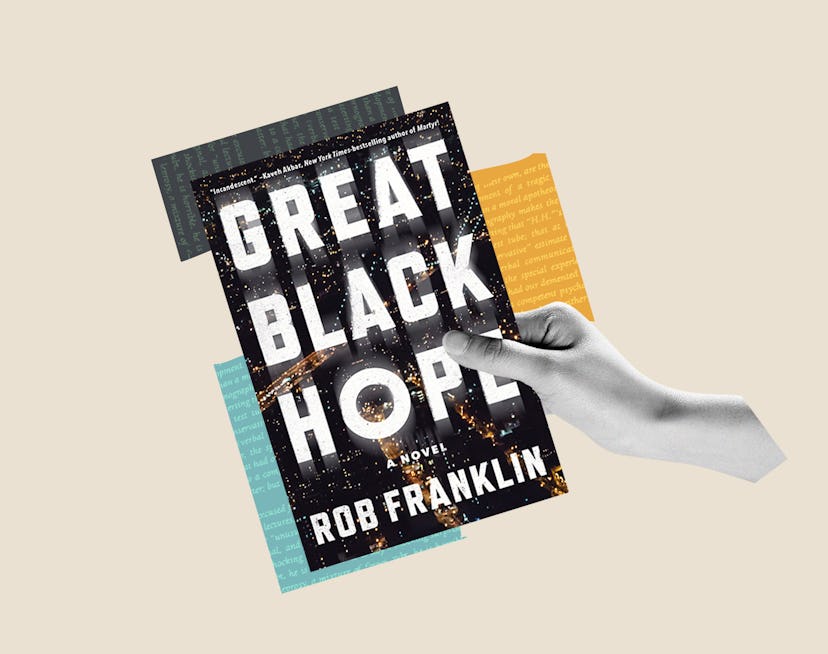Bustle Book Club
Rob Franklin Says Goodbye To All That
The debut author — and avowed Joan Didion fan — opens up about his writing process.

When asked what it felt like to pen his debut, Great Black Hope, Rob Franklin cites James Baldwin — a writer who had a similar experience, nearly 70 years prior. “His first novel, Go Tell It on the Mountain, drew very heavily from his upbringing growing up in Harlem. He said it allowed him to write other things instead of always wanting to get to these core personal questions,” Franklin tells Bustle. “People have asked me I think what [writing] my book gave me, and a lot of is clearing the pipes.”
Great Black Hope treads familiar terrain for Franklin, from the downtown New York club scene where the Brooklyn-based author has clocked his fair share of midnight hours, to the suburbs of Atlanta where he was raised. But when the protagonist, Smith, gets arrested for cocaine possession — one of the few biographical details he doesn’t share with Franklin — the novel turns inward, traversing Franklin’s private anxieties.
“I was really interested in looking at how the label of ‘addict’ being applied to him would call into stark relief all of these larger questions around how he’s being perceived, how he has to form himself, and how he has to tame his identity to get through the world,” Franklin says. “These [are the] questions and frustrations I’ve had since I was 15 around Black respectability politics and just so much of my life.”
So what is he doing with this cleared-out brain space? Writing something entirely outside of his experience. “I’m really interested in tech and transhumanism, the idea that we can use technology to artificially extend life,” he says, teasing the themes of his next novel. “The people in my life, myself included, try to create meaning by making art. But the most powerful people in the world are contending with mortality being like ‘What if we indefinitely extended this thing but robbed it of all its poetry?’” Rendered in Franklin’s artful prose, the art-hating elite are sure to be found wanting.
Below, Franklin reflects on indie presses, his favorite composers, and Joan Didion.
On the novella he’s loving:
I’m currently reading Information Age by Cora Lewis. It’s a novella published by Joyland, which is an indie press. It follows a general interest reporter of an Internet magazine in the 2010s, and a lot of it is constructed in these poetic vignettes of things that she’s hearing from sources and overhearing in public. It’s well-observed and has this sort of tapestry quality that feels really fresh. Even the things that it reminds me of — like Sheila Heti’s How Should a Person Be? — it doesn’t quite remind me of. It reinvigorated my excitement about what an indie press can do in terms of experimentation with structure and voice.
On his writing soundtrack:
I listen to movie scores when I’m writing. I love the one from Past Lives, Aftersun, the Netflix series One Day, and that Dan Levy movie Good Grief. I love [the composers] Max Richter and Jon Brion, and I have a playlist for them all.
On the essay that always hits:
People who remind me of the point of writing pull me out of a rut — like Joan Didion. With this book, “Goodbye to All That” was often something that I would re-read if I didn’t feel like writing that day. It’s short enough that you can get through in 10 minutes, but gives me a kind of chilling feeling. That version of her elegiac New York really informs this book.
On searching for the ideal writing spot:
I work at cafes, so if the vibe of the cafe isn’t correct, I’ll go to a new one. In a new city, I’ve been known to stop into multiple cafes and be like, “The vibe still isn’t right.” I do think that can be [a way to procrastinate] writing. I’m just trying to find this mythical perfect environment.
This interview has been edited and condensed for clarity.